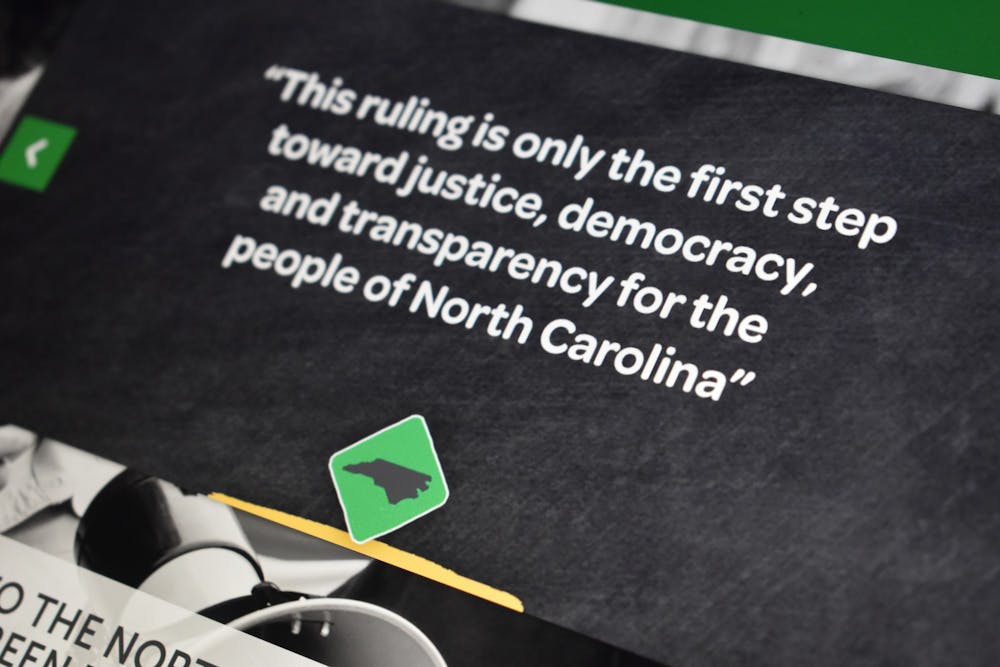After allegations of fraud and a past denial of certification by the North Carolina State Board of Elections, the N.C. Green Party was recently certified as an official party and will appear on general election ballots for the 2022 midterms.
The NCSBE voted unanimously to recognize the Green Party on Aug. 1, according to a press release. The Board will be creating new voter registration forms that include the Green Party.
However, this certification did not automatically guarantee that the Green Party would appear on the Nov. 8 general election ballot. The deadline to submit nominees for this year’s elections was July 1, but the NCSBE denied the party on June 30 in a 3-2 vote. But an Aug. 5 decision by the U.S. District Court means the party will appear on the ballot.
In the June decision, the board cited an ongoing investigation into "evidence of fraud and other irregularities in the petition process used to seek ballot access for the party," according to a June 30 press release.
How parties are certified in North Carolina
The process to be certified as a recognized political party in North Carolina requires that the party meet one of three criteria. The Green Party failed to fulfill two criteria — receiving 2 percent of the votes cast in the most recent general election or having a candidate on the general election ballot in at least 70 percent of the states in the most recent presidential election.
Because of this, it was forced to pursue the third option: petition process. This process required the party to create a petition that received signatures equal to at least 0.25 percent of those who voted in the most recent election for governor.
The Green Party was last recognized as a political party in 2021 after being added to the ballot in 2018, when the NCSBE changed the policy regarding political party certification.
"Until 2018, I think there was a threshold of 90,000 signatures that you needed, which is not insubstantial — it would take a lot of effort to get 90,000 unique signatures," William Goldsmith, a UNC professor of public policy, said. "So it was very difficult for third parties to get on the ballot in North Carolina for many decades."




